Health visitor service for older people reducing hospital admissions and 'changing lives'
As the number of older people continues to grow, the demand for health and care services is increasing.
Despite the increasing number of older people living in the UK with one or more long-term health conditions, not all older people require regular home care, and an innovative scheme in Croydon is proving that a little help and assistance can go a long way in helping older people to remain independent and living in their own homes.
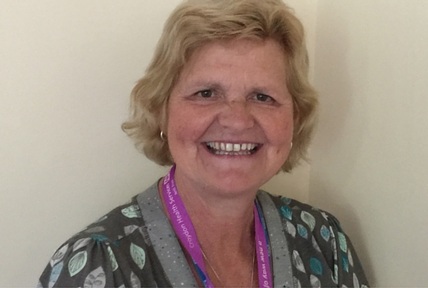
The Health Visiting for Older People (HVOP) team is just one example of a scheme that is successfully helping older people to stay well and live independent lives without the need for regular home care and is helping to reduce the number of hospital admissions from falls and ill-health.
The service is run by Croydon Health Services NHS Trust and was established in 1996 as a pilot by a group of GP commissioners who identified that frail older people living in Croydon needed a support service, specifically, those who didn’t have family living in the local area.
Originally run by just one woman, clinical team leader for the service, Gill Vincent-Clayden has a background in nursing and spent time working as a midwife before becoming a health visitor for young families.
Health visiting was birth to the grave
Ms Vincent-Clayden said: “Traditionally health visiting was birth to the grave, but in recent decades, health visiting has been concentrated on supporting families with young children. So when this service was introduced, it was unique in that you can transfer other skills from working with families to working with older people.
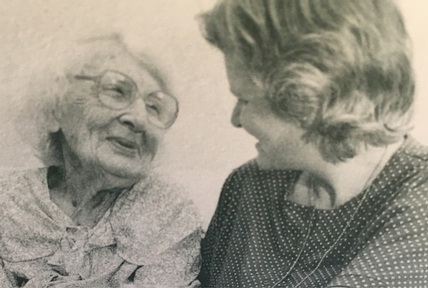
“The service was originally developed to support people over the age of 65, however, the majority of the people the service supports are over 80. People in their 60s, for the most part, are generally still very active whereas people over the age of 80 tend to need more support and we even have some clients over 100."
"Sometimes we get referrals from GPs for clients who are in their forties who may have Parkinson’s, Multiple Sclerosis (MS) or early onset dementia who may slip through the net, as there aren’t services specifically designed to support that age group.The health visiting team consists of health visitors, including those with a background in nursing, as well as healthcare assistants, community nurses and practice nurses."
The service supports people on a referral basis with referrals being made by local GPs but also accepts referrals directly from clients or concerned family members or friends and the number of referrals is increasing month by month.
In its first year, the service received 160 referrals and made almost 600 home visits and has grown significantly. In the past year alone the team have received more than 1,000 referrals and have helped more than 8,000 older people living in Croydon.
Bridging the gap between health and social care services
The HVOP team conduct an initial consultation and a holistic assessment, which covers several areas including: medical health, financial, social and environmental aspects of their life.
She said: “Our aim is to bridge the gap between health and social services as a lot of people unfortunately do not fit the criteria to receive support from some services so we aim to be as flexible as possible. Especially older people who may have a specific need, we try to help them and keep them independently living at home.
“Health visitors are uniquely placed to help identify people who may be in crisis, when they’re not able to look after themselves and when they’re not eating or drinking properly.
“All of our health visitors can assess and measure people for aids and equipment and we can order these things directly and can get them out to people within 10 days, whereas normally people have to wait to be referred to occupational therapy. We try to be a ‘one stop shop’ in that we try to do as much as we can during a visit."
Sharing information and helping people
Health visitors help clients to apply for Attendance Allowance, which allows people to choose their own care if they need it rather than be referred by social services.
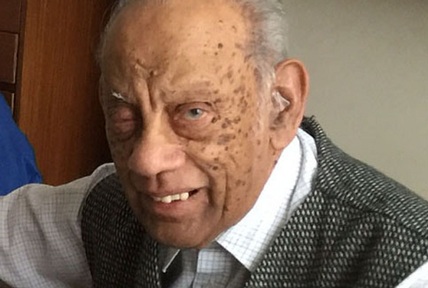
With the number of over 65s living in Croydon expected to reach more than 65,000 in the next 10 years and approximately one-third of those expected to have one or more long-term health conditions, the service is set to continue to be in demand.
Ms Vincent-Clayden said: “It’s all about sharing information to help people and supporting people to access additional support services. Health visitors work with clients and can work around their care needs. During regular visits they can carry out health checks and help both clients and family carers. The service is flexible and health visitors can take a step back if a client's health improves or their need for support decreases, allowing clients to pick the service again if they need it."
Fear of being referred to social services
Speaking about the worries older people using the service share, Ms Vincent-Clayden said: “The biggest fear that people have is that if they are referred to social services, they could end up being put in a care home. We have to reassure people that it is quite unusual for people to be referred to a home and there are so many facilities and services now available to people in their own homes."
During her time working for the service, Ms Vincent-Clayden has met a range of different characters during her time working as a health visitor, including a man who had 27 clocks which were all set to chime at the same time, and lady who said her main reason for getting out of bed in the morning was to check on her tortoise.
She said: “Most of the people we support are women and we’ve found that older men don’t manage as well on their own, but we do have some older men who are great characters who we help and support.
Feeling valued
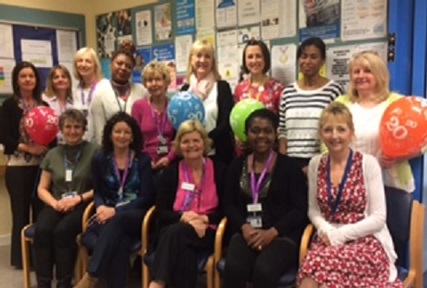
“People say the service has really changed their lives, some say we bring the sunshine in and they really look forward to our visits. Another aspect is that the service helps to reduce the pressure on local health services, where someone may have ordinarily gone to see their GP, clients talk to us about all sorts of things and it makes a huge difference to people.
“Generally older people don’t always feel valued and they don’t want to bother their families so they love having someone visiting them who wants to listen. It’s rare that we don’t have a good experience and having done nursing, health visiting and midwifery, I’ve never felt as effective as I do in this role."
Latest Innovative Care News
 13-May-19
'Pink drink' brain cancer treatment rolled out across NHS in memory of Baroness Jowell
13-May-19
'Pink drink' brain cancer treatment rolled out across NHS in memory of Baroness Jowell
 25-Apr-19
Louis Tomlinson helps 83-year-old who lost wife to dementia complete bucket list
25-Apr-19
Louis Tomlinson helps 83-year-old who lost wife to dementia complete bucket list
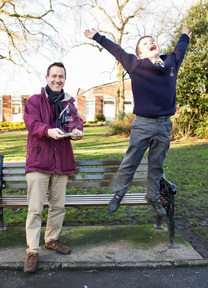 05-Mar-19
Care worker of the year inspires nine-year-old son to work in care
05-Mar-19
Care worker of the year inspires nine-year-old son to work in care
 12-Feb-19
Michael McIntyre's jokes tested to see if they stop elderly catching flu
12-Feb-19
Michael McIntyre's jokes tested to see if they stop elderly catching flu
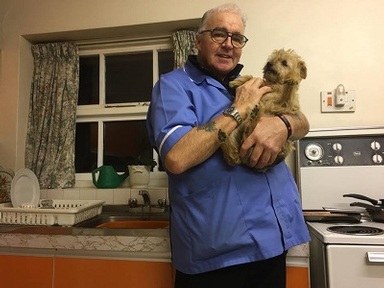 25-Jan-19
Ninety-year-old and his dog can stay together, thanks to care worker
25-Jan-19
Ninety-year-old and his dog can stay together, thanks to care worker